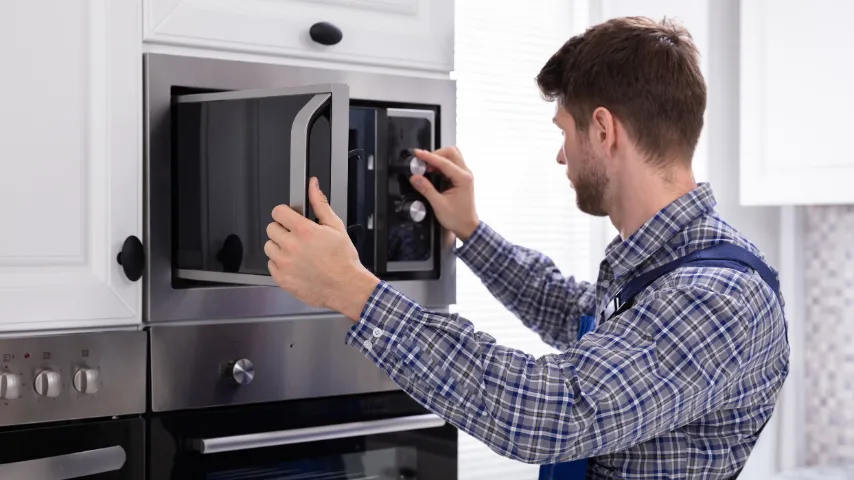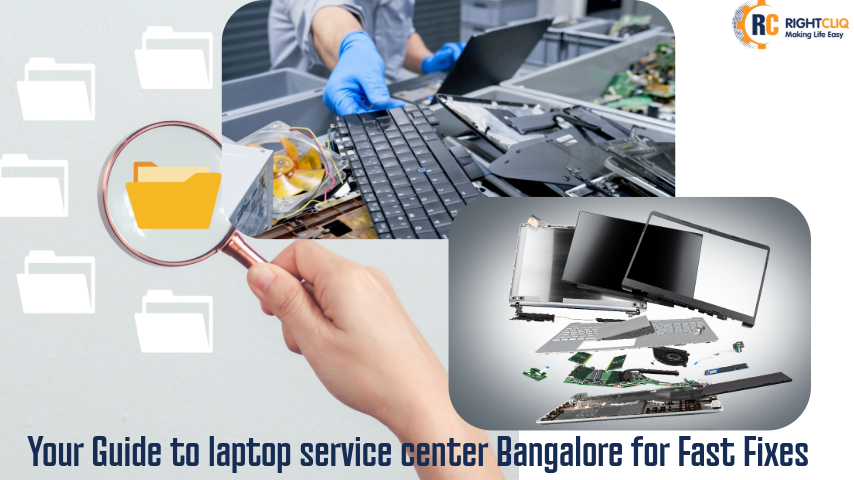Revive Your Kitchen Hero: The Ultimate Guide to Microwave Oven Repair in 2025

microwave oven repair and maintenance service
Microwave ovens have become an indispensable part of modern kitchens, allowing us to quickly and conveniently heat and cook our favorite meals. However, like any other appliance, microwave ovens can encounter issues and require repair. In this comprehensive guide, we will walk you through common microwave oven problems and Rightcliq Services provide you with expert tips on how to troubleshoot and repair them. Whether you're a seasoned DIY enthusiast or a novice looking to save money on repairs, this guide is here to help you revive your kitchen hero.
1. Introduction
Microwave ovens have revolutionized the way we cook and reheat food. However, even the most reliable appliances can experience issues over time. Understanding common problems and learning how to resolve them can save you time and money. In this article, we will provide you with a step-by-step guide to diagnosing and repairing your microwave oven.
2. Safety First: Precautions Before Repairing
Before attempting any repairs on your microwave oven, it's crucial to prioritize safety. Remember to unplug the appliance from the power source and avoid touching any internal components without proper knowledge. Additionally, using insulated gloves and following manufacturer guidelines will minimize the risk of electrical shocks or injuries.
3. Common Microwave Oven Problems
Microwave ovens can encounter various problems that affect their performance. Here are some common issues you might come across:
3.1 Oven Not Heating
If your microwave oven isn't heating food properly, it can be frustrating. This issue can occur due to a faulty magnetron, diode, or capacitor. We will guide you through the troubleshooting steps to identify and fix the root cause.
3.2 Turntable Not Rotating
A microwave oven with a malfunctioning turntable can result in unevenly cooked food. This problem may be due to a defective motor or a faulty roller guide. We'll show you how to inspect and resolve this issue.
3.3 Sparks Inside the Oven
Sparks inside the microwave oven can be alarming and dangerous. This issue usually arises from metallic objects or damaged waveguide covers. We'll explain how to eliminate the sparks and prevent them from reoccurring.
3.4 Strange Noises
Unusual noises coming from your microwave oven can indicate underlying issues. The causes can range from a worn-out stirrer motor to faulty fans or loose components. Our guide will help you identify and address these noises effectively.
3.5 Door Not Closing Properly
A microwave oven door that doesn't close properly can lead to heat leakage and inefficient cooking. This problem may be due to misaligned door latches or damaged hinges. We'll walk you through the steps to rectify this issue.
3.6 Control Panel Malfunctioning
When the control panel of your microwave oven malfunctions, it can affect its overall usability. This issue can be caused by a defective touchpad or control board. We'll provide you with troubleshooting methods to get your control panel back in working order.
3.7: Burning Smell
A burning smell emanating from your microwave oven can be a cause for concern. This problem can occur due to food spills, malfunctioning components, or electrical issues. We'll help you identify the source of the odor and address it appropriately.
3.8 Overheating
Excessive heat buildup in your microwave oven can be dangerous and may indicate a malfunctioning cooling fan or damaged thermal sensors. We'll guide you through the steps to resolve this issue and prevent overheating.
4. Troubleshooting and repair steps
In this section, we will provide you with a detailed explanation of the troubleshooting and repair steps for each of the previously mentioned issues. It's important to follow the instructions carefully and refer to your microwave oven's user manual for specific guidance.
4.1 Checking the Power Supply
Before diving into internal repairs, it's essential to ensure that your microwave oven is receiving adequate power. We'll show you how to inspect the power cord, plug, and outlet for any faults.
4.2 Testing the Door Switches
The door switches play a vital role in the proper functioning of your microwave oven. We'll demonstrate how to test these switches using a multimeter and replace them if necessary.
4.3 Inspecting the High Voltage Capacitor
A faulty high-voltage capacitor can prevent your microwave oven from heating properly. We'll guide you through the process of safely discharging and testing the capacitor for any defects.
4.4 Examining the Magnetron
The magnetron is responsible for generating the microwave radiation that heats the food. We'll show you how to examine this component and replace it if it's faulty.
4.5 Assessing the Diode
A defective diode can cause issues with the microwave oven's heating capabilities. We'll explain how to check the diode's continuity and replace it if required.
4.6 Inspecting the Thermal Fuse
The thermal fuse acts as a safety device and protects your microwave oven from overheating. We'll demonstrate how to test the thermal fuse and replace it if it's blown.
4.7 Testing the Control Board
If your microwave oven's control panel is malfunctioning, the control board might be the culprit. We'll guide you through the process of testing and, if needed, replacing the control board.
4.8 Cleaning and Maintenance
TipsRegular cleaning and maintenance can prolong the lifespan of your microwave oven. We'll provide you with simple yet effective tips to keep your appliance in optimal condition.
5. When to call a professional
While many microwave oven repairs can be done at home, there are instances where it's best to seek professional assistance. We'll highlight situations where calling a certified technician is recommended to ensure safety and accurate repairs.
6. Frequently Asked Questions (FAQs)
6.1: Can I repair my microwave oven myself?
Yes, you can perform basic repairs on your microwave oven if you have the necessary knowledge and follow proper safety precautions. However, for complex issues or if you're unsure, it's advisable to seek professional help.
6.2: How often should I clean my microwave oven?
Regular cleaning is essential to maintaining a hygienic and efficient microwave oven. Aim to clean the interior and exterior at least once a month, or as needed.
6.3: Is it normal for my microwave oven to make noise?
Some operational noises, such as the hum of the magnetron or the fan, are normal. However, if you notice any unusual or loud noises, it's best to investigate and address the issue.
6.4: Can a microwave oven explode?
While rare, microwave ovens can potentially explode if safety guidelines are not followed or if there is a severe malfunction. Following proper usage and maintenance procedures minimizes the risk of such incidents.
6.5: How long should a microwave oven last?
On average, a well-maintained microwave oven can last between 8 and 10 years. However, the lifespan may vary depending on usage, brand, and maintenance practices.
7. Conclusion
Microwave ovens are essential kitchen appliances that simplify our cooking and reheating tasks. With the knowledge gained from this comprehensive guide, you are equipped to diagnose and repair common issues that may arise with your microwave oven. Remember to prioritize safety and consult a professional if needed. By following the troubleshooting steps and implementing proper maintenance, you can extend the life of your microwave oven and continue to enjoy its convenience in your kitchen.
At rightcliq.in, we pride ourselves on being the best microwave oven repair service provider. With our team of experienced technicians and commitment to quality, we strive to revive your kitchen hero and ensure its optimal performance. Contact us today for all your microwave oven repair needs.















